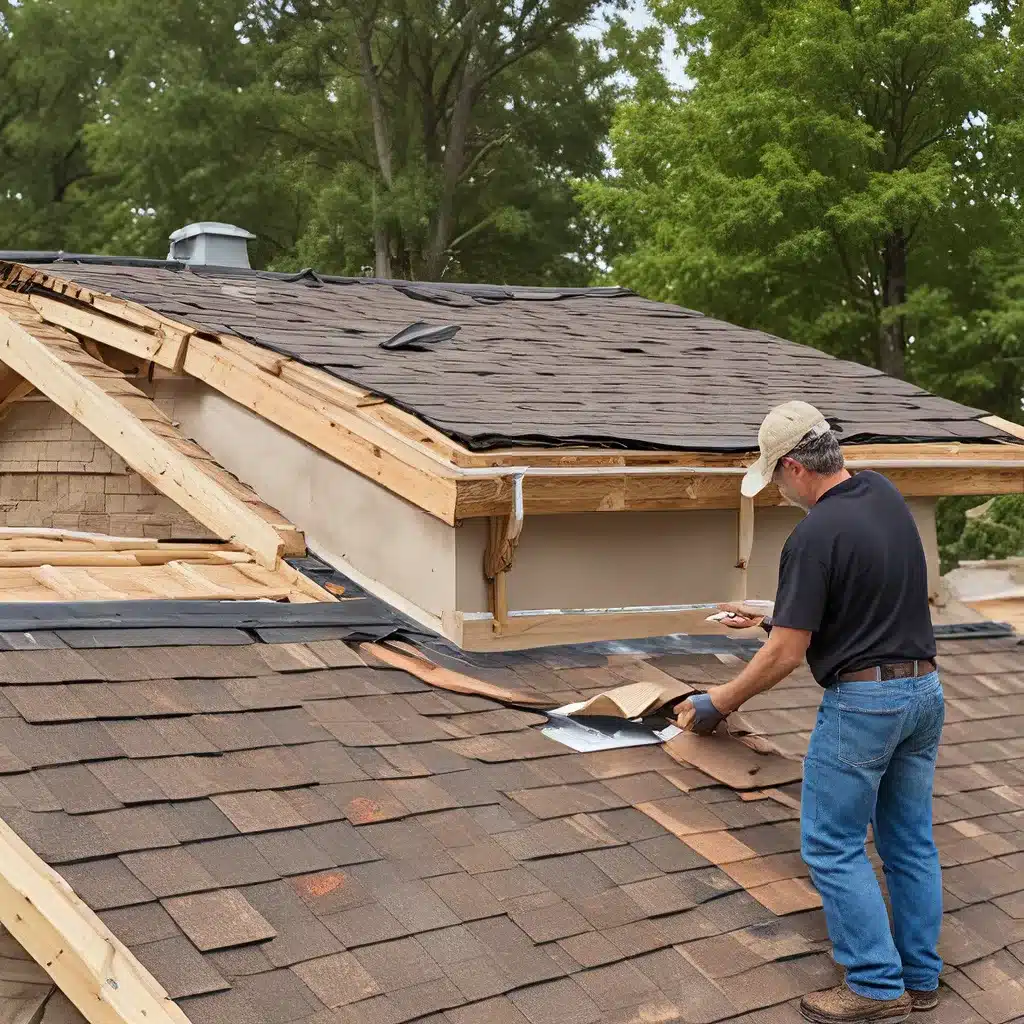
As a homeowner, the prospect of a roof replacement can feel daunting, both physically and financially. After all, your roof is the first line of defense against the elements, and a faulty or aging roof can lead to costly water damage and structural issues. However, with the right knowledge and planning, you can navigate the roof replacement process with confidence and ensure that your investment pays off in the long run.
Understanding the Triggers for Roof Replacement
When it comes to your roof, there are a few telltale signs that it’s time to start thinking about a replacement. The age of your roof is a significant factor – most roofs have a lifespan of 20-30 years, so if yours is nearing or has surpassed that mark, it’s time to start preparing. According to the experts at Class 1 Pavers & Remodelers, other warning signs include damaged or missing shingles, visible leaks and water damage, and excessive granule loss from your asphalt shingles.
Evaluating Roofing Material Options
Once you’ve determined that it’s time for a roof replacement, the next step is to explore the various roofing material options available. Each type has its own set of advantages and drawbacks, so it’s essential to weigh your priorities and budget to make the best choice for your home.
Asphalt Shingles are a popular and cost-effective choice, offering a wide range of style options and a lifespan of up to 25 years. However, they may not be as durable or energy-efficient as some other materials.
Metal Roofing is a more premium option, boasting a long lifespan of 40-70 years, excellent energy efficiency, and low maintenance requirements. The initial investment is typically higher, but the long-term benefits can make it a worthwhile choice.
Wood Shingles and Shakes lend a natural, timeless aesthetic to your home, but they require regular maintenance to prevent rot, mold, and insect damage. Their lifespan can range from 30 to 50 years.
Tile Roofing is a durable and weather-resistant option, with a lifespan of 50-100 years. However, the heavyweight nature of tile and its higher cost can be drawbacks for some homeowners.
Budgeting for a Successful Roof Replacement
Establishing an accurate budget for your roof replacement project is crucial to ensure a successful outcome. According to the experts at Class 1 Pavers & Remodelers, there are several key factors to consider:
Material Costs: Research the costs of various roofing materials and weigh the pros and cons of each option based on your priorities and budget. Remember, the cheapest option may not always be the best long-term investment.
Labor Expenses: The quality of your roofing contractor will have a significant impact on labor costs. While it may be tempting to go with the cheapest option, compromising on quality can lead to subpar workmanship and potential issues down the line.
Permits and Inspections: Depending on your local building codes and regulations, you may need to obtain specific permits or undergo inspections, which can add to the overall cost of your project.
Unforeseen Costs: Always allocate extra funds in your budget for unexpected expenses, such as structural damage that may be hidden under your existing roof.
Choosing the Right Roofing Contractor
Selecting a trustworthy and reliable roofing contractor is critical for the success of your replacement project. Here are some key criteria to consider:
Licenses and Insurance: Confirm that your potential contractor possesses the necessary licenses and carries adequate insurance to protect both parties.
Workmanship and Reputation: Look for a contractor with a proven track record of quality work, strong communication, and high customer satisfaction. Request references and read reviews to gauge their performance.
Detailed Estimates and Contracts: Ask for a detailed written estimate specifying materials, labor, and costs. Review the contract thoroughly and resolve any uncertainties before signing.
Warranty Coverage: Opt for a contractor who offers a solid warranty for both materials and workmanship to safeguard your investment.
Embarking on Your Roof Replacement Journey
Undertaking a roof replacement is a significant investment, but with careful planning and the right approach, it can be a smooth and rewarding process. By recognizing the signs that it’s time for a new roof, selecting the best material for your needs, budgeting wisely, and partnering with a reliable contractor, you can confidently embark on this essential home improvement project.
At Southern Roofing Company, our experienced and dedicated team is committed to guiding you through every step of the roof replacement process, delivering unmatched quality and expertise. Contact us today to get started on your roof replacement journey toward a safer, more attractive, and energy-efficient home in 2024 and beyond.
Frequently Asked Questions
How often does a roof need to be replaced?
Most roofs have a lifespan of 20-30 years, but this can vary depending on the roofing material, climate, and other factors. Regular inspections and maintenance can help extend the life of your roof.
What are the benefits of a metal roof?
Metal roofs offer several advantages, including a long lifespan (40-70 years), excellent energy efficiency, low maintenance requirements, and environmental friendliness. However, the initial investment is typically higher than other roofing materials.
How can I find a reputable roofing contractor?
When selecting a roofing contractor, be sure to check their licenses and insurance, review their workmanship and reputation, obtain a detailed estimate and contract, and ensure they offer a solid warranty for both materials and workmanship.
What should I budget for a roof replacement?
Your roof replacement budget should account for the cost of materials, labor expenses, permits and inspections, and a cushion for unexpected costs. Researching the various roofing material options and getting multiple quotes from contractors can help you develop an accurate budget.
How long does a roof replacement project typically take?
The duration of a roof replacement project can vary depending on the size and complexity of your home, the roofing material being used, and the workload of your chosen contractor. On average, a standard roof replacement can be completed within 3-5 days, but more extensive projects may take longer.